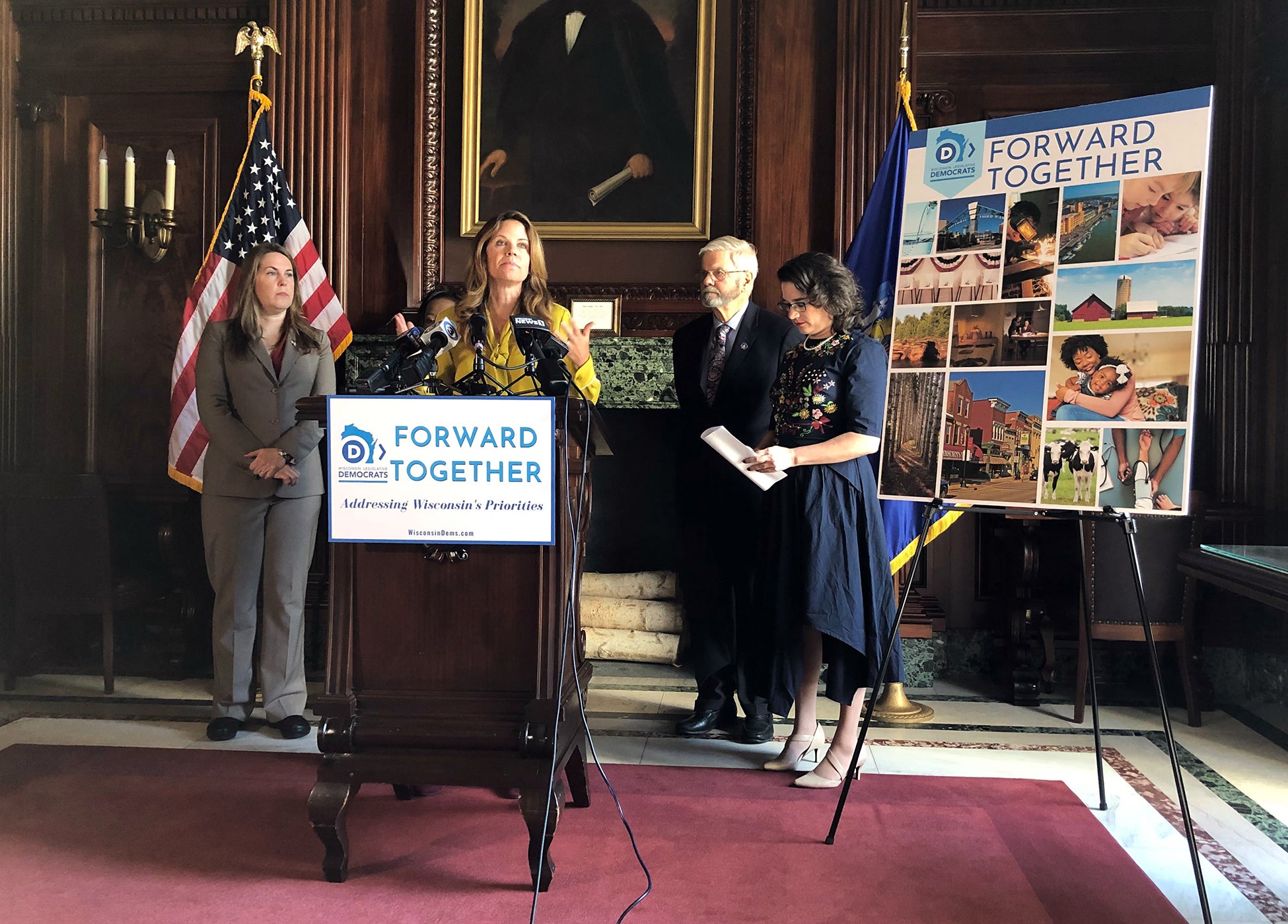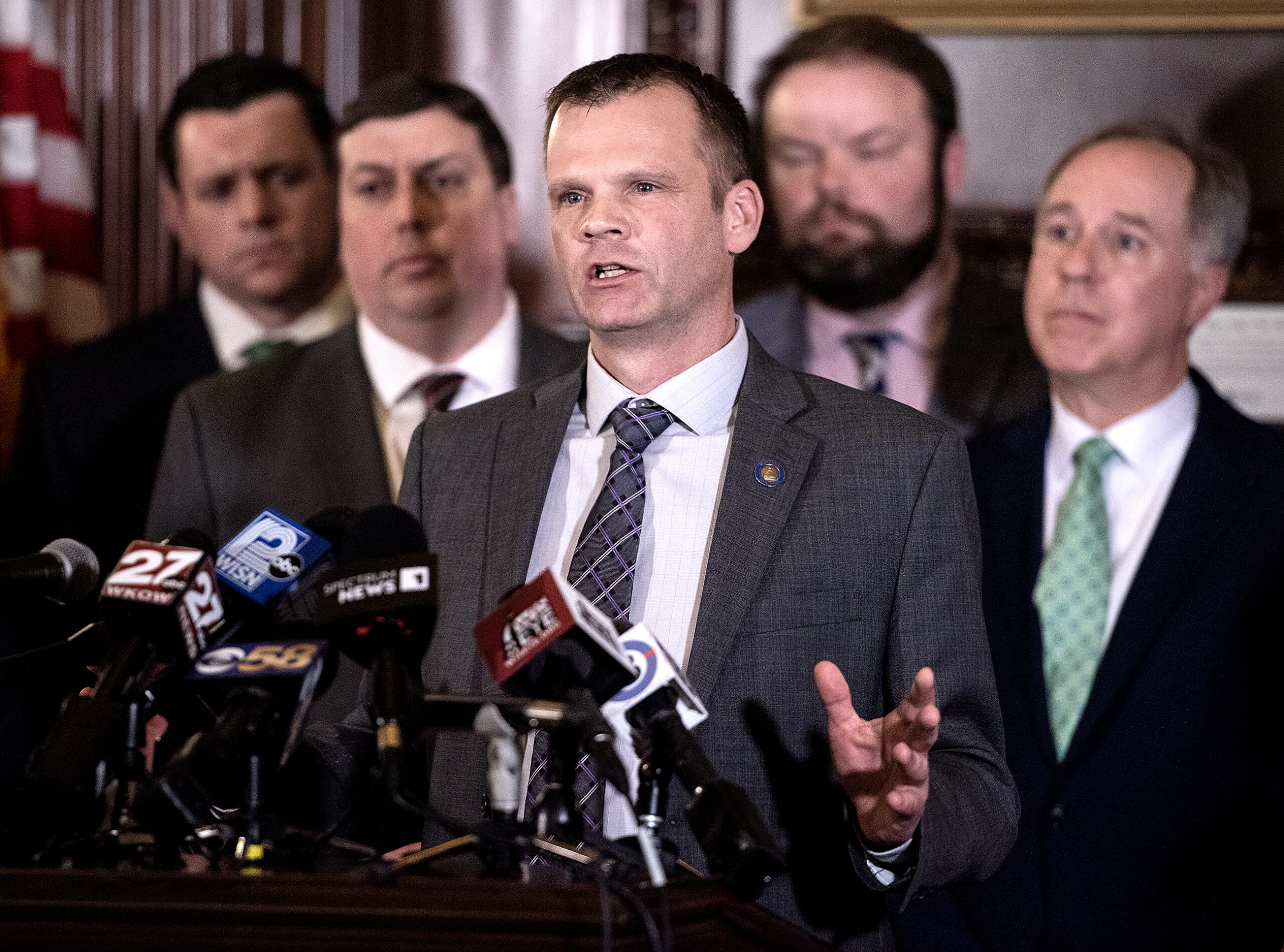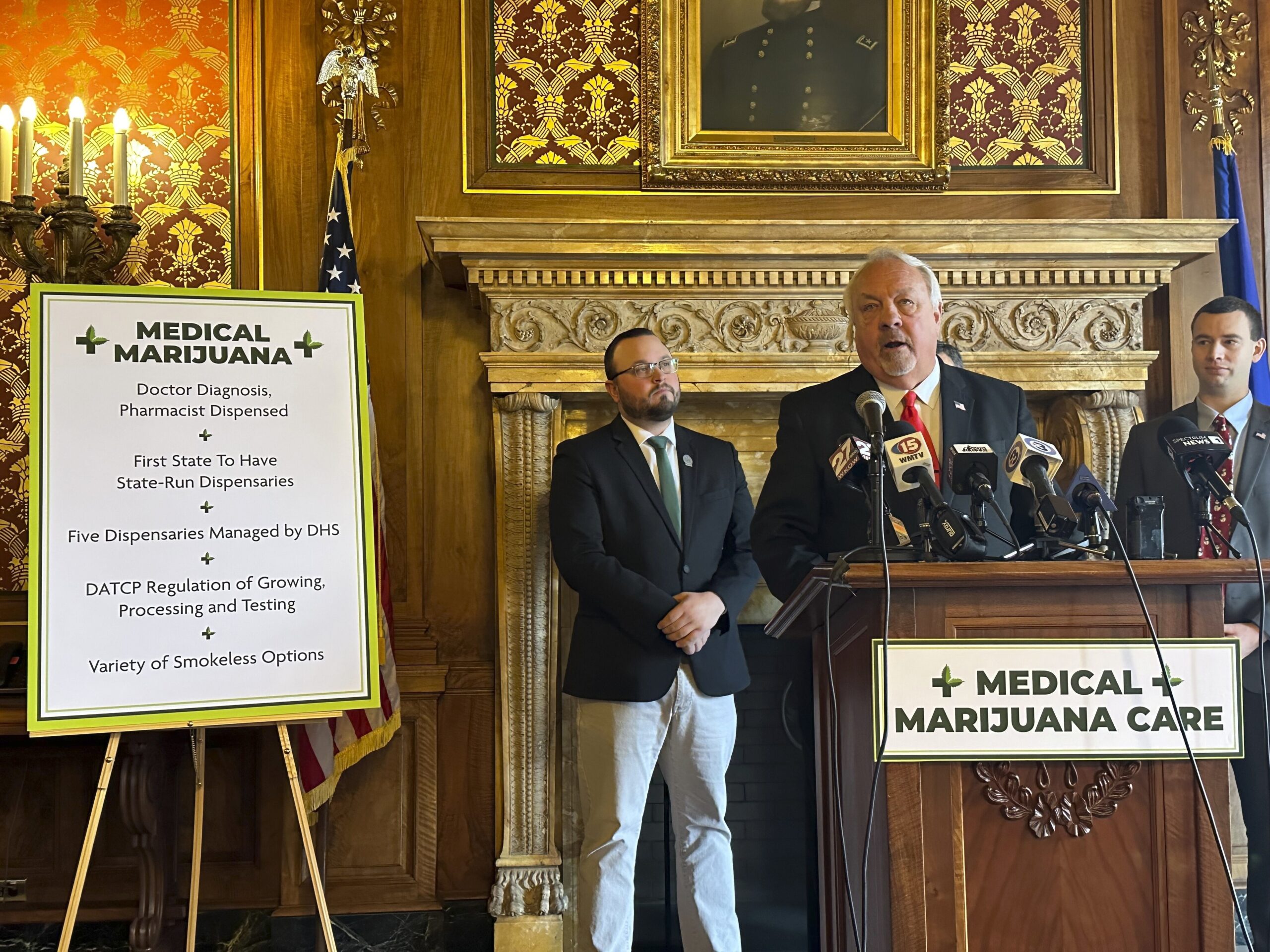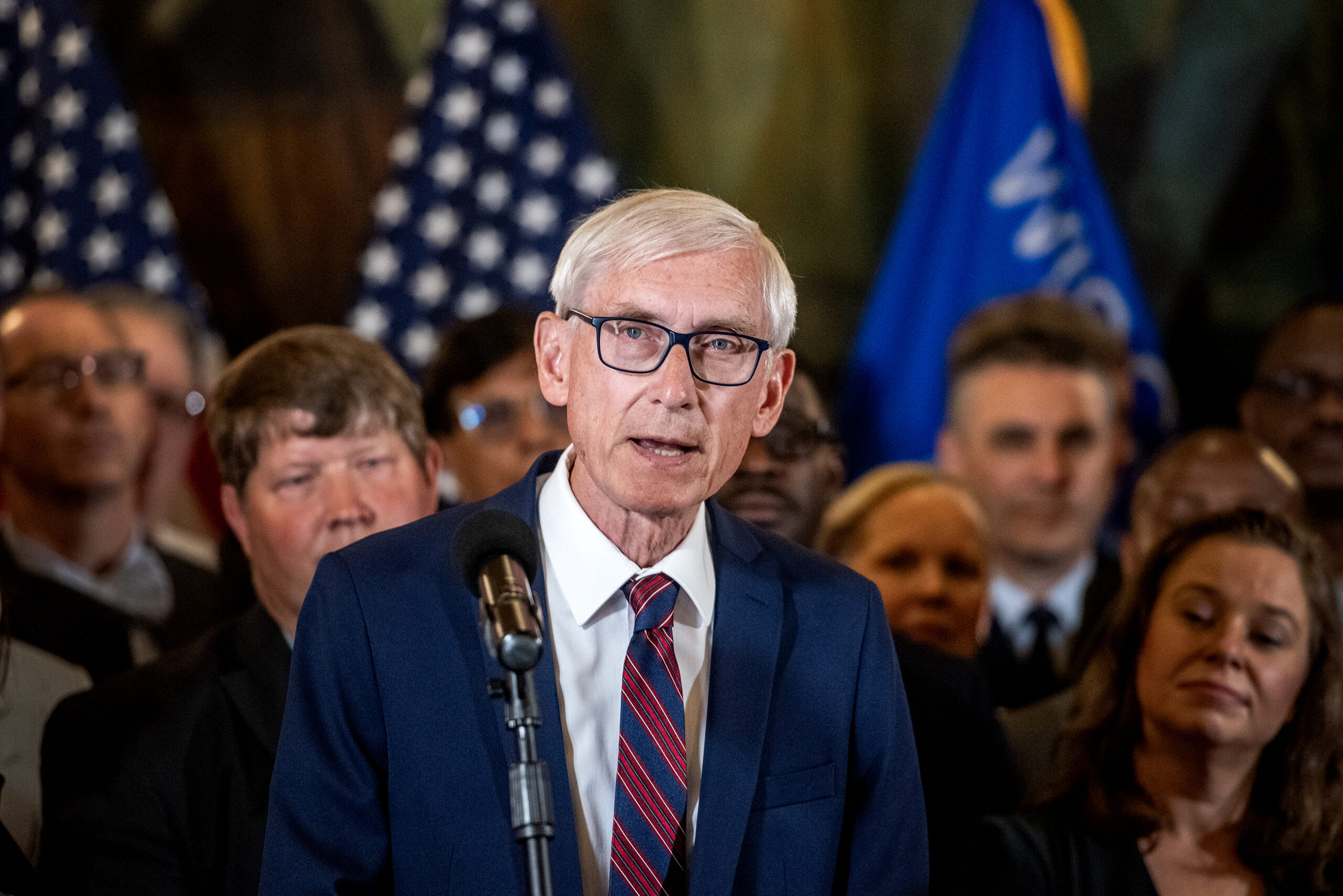Wisconsin Democrats on Monday unveiled their priorities for the fall legislative session, citing strong public support for a number of proposals that have been repeatedly rejected by the GOP-controlled state Legislature.
The Democrats’ priorities include measures to increase regulation of guns in Wisconsin, including a bill to expand background checks and a bill to instate a so-called “red flag law.” Red flag laws allow judges to temporarily revoke gun rights from individuals deemed a danger to themselves or others.
Speaking at a Capitol press conference, Rep. Melissa Sargent, D-Madison, sponsor of the red flag proposal, cited a poll released last month by Marquette University that found 81 percent of Wisconsin residents support the plan.
Stay informed on the latest news
Sign up for WPR’s email newsletter.
The poll found similar levels of support for expanding background checks to private, online sales and sales at gun shows in Wisconsin.
“Our government, quite frankly, is broken,” Sargent said, criticizing Republicans for not holding public hearings on the bills. “It’s pretty apparent that the approval ratings of these policies are higher than the approval ratings of most of my Republican colleagues in this building.”
Gov. Tony Evers has said he’s considering calling a special session to take up gun-related proposals. However, Republican leaders have said they oppose both bills. Within the realm of gun proposals, they have said they would prefer to focus on expanding mental health care and providing funding for security upgrades to schools and other vulnerable buildings.
Rep. Chris Taylor, D-Madison, said Evers should still call the special session, even if it’s unlikely the Democrats’ measures will be taken up.
“It shows the people of the state that the governor is going to stand up for them,” Taylor said of the governor’s potential call. “The people of the state want government to be on their side.”
Democrats also used their Monday press conference to draw attention to a proposal to legalize medical marijuana in Wisconsin.
According to an April 2019 poll from Marquette, 83 percent of state residents support legalizing medical marijuana.
“We have a bill that has bipartisan support, so there are no excuses for not moving this bill (forward),” Taylor said.
The bill, which would require patients to get a doctor’s recommendation to use marijuana and set up various state regulations, is sponsored by Sens. Jon Erpenbach, D-West Point, and Patrick Testin, R-Stevens Point, along with Taylor.
Assembly Speaker Robin Vos, R-Rochester, has been open to legalizing medical marijuana for years, but Senate Majority Leader Scott Fitzgerald, R-Juneau, opposes it.
The lawmakers also pointed to public opinion on expanding Medicaid in Wisconsin by accepting more federal money for the program. Seventy percent said they supported that in the April poll.
During their remarks, Democrats blamed Wisconsin’s legislative maps, which were drawn by Republicans in 2011, for encouraging Republican majorities that don’t accurately reflect policy views held by Wisconsin residents. Republicans hold a 63-36 majority in the Assembly and a 19-14 majority in the Senate.
“The inaction of the gerrymandered majority has families worried they might not see their problems addressed in this legislative session,” said Sen. Mark Miller, D-Monona.
Democrats also said Monday they will push bills to raise the minimum wage, create a nonpartisan redistricting commission and improve rural broadband access during the fall legislative session.
The state Senate and Assembly are both scheduled to meet to take up a number of bills this week.
Wisconsin Public Radio, © Copyright 2024, Board of Regents of the University of Wisconsin System and Wisconsin Educational Communications Board.






